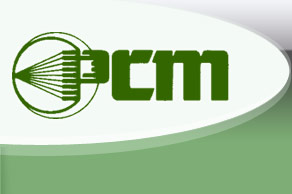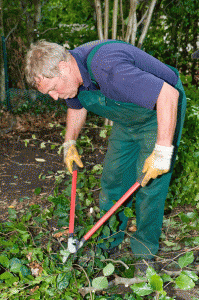It is hard to go a day without hearing or reading the word “Teflon.” It has become so ingrained in our modern verbiage that it’s one of those trademark names, like Kleenex® or Post-It®, that gets used to cover a much broader range than it actually means. Teflon® is a little different though: while it may occasionally be used to refer to other non-stick coatings, the real difference is that there are so many different formulations that fall under the Teflon® umbrella, that the single name is now used to talk about 60 or 70 different chemistries.
These formulations include Teflon® PTFE, FEP, ETFE, PFA, and many more. Each of these amazing and groundbreaking formulations has different and often unique characteristics. Teflon® offers coatings that are non-stick, heat resistant, chemical resistant, water resistant, just to name a few. With all these choices, it is easy to get confused. Many of our customers know that they need Teflon® coatings for their machinery, however with 70 to choose from, they don’t always know exactly which formulation is perfect for their needs. That’s why PCM is here. We know everything there is to know about the Teflon® family of coating systems. If someone in the pharmaceutical industry calls us, we know that Teflon® ETFE and PFA are perfect to protect their equipment from harsh chemicals. When commercial bakers need coatings systems, we know that SBS-Teflon® is the right choice for them. It really doesn’t matter the industry, the experts at PCM have the perfect Teflon® coating system solution.
So don’t rely on just anyone when it comes to supplying you with the wonders of Teflon®. Because in the end, Teflon® really is more than just Teflon®.



 Nothing is lovelier than a beautiful garden. The smells, the colors, it’s all so wonderful and calming. That is if you don’t have to tend to one! Despite the hard work, bug bites, and sunburns, Americans love to garden, and they love to spend money on it as well. U.S. households spent $29.1 billion on their lawns and gardens in 2011 – about $351 per household each year. Some of those billions go to things like shears and scissors. These implements are great for pruning flowers, cutting grass, and even trimming hedges in cool shapes. Companies like Fiskars, Klein, and even Martha Stewart make shears and scissors in wide variety of sizes and shapes.
Nothing is lovelier than a beautiful garden. The smells, the colors, it’s all so wonderful and calming. That is if you don’t have to tend to one! Despite the hard work, bug bites, and sunburns, Americans love to garden, and they love to spend money on it as well. U.S. households spent $29.1 billion on their lawns and gardens in 2011 – about $351 per household each year. Some of those billions go to things like shears and scissors. These implements are great for pruning flowers, cutting grass, and even trimming hedges in cool shapes. Companies like Fiskars, Klein, and even Martha Stewart make shears and scissors in wide variety of sizes and shapes. Nothing says summer like a nice round of golf! Experts believe that 24 million people in the United States play golf on a regular basis. Out of those 24 million only 8,000 are professionals, so that leaves many golfers who may lose a golf ball or two (or 12) every time they play a round. It is one of the main reasons that companies like Nike, Titleist, Pinnacle, and Callaway manufacture and ship over 850 million golf balls each year. Most golf balls come in three varieties: two-piece, three-piece, and dimple-covered shell. Two-piece are the most common and account for about 70% of all sales. The other two are made for better golfers, thus their lower popularity.
Nothing says summer like a nice round of golf! Experts believe that 24 million people in the United States play golf on a regular basis. Out of those 24 million only 8,000 are professionals, so that leaves many golfers who may lose a golf ball or two (or 12) every time they play a round. It is one of the main reasons that companies like Nike, Titleist, Pinnacle, and Callaway manufacture and ship over 850 million golf balls each year. Most golf balls come in three varieties: two-piece, three-piece, and dimple-covered shell. Two-piece are the most common and account for about 70% of all sales. The other two are made for better golfers, thus their lower popularity.
Follow us on: